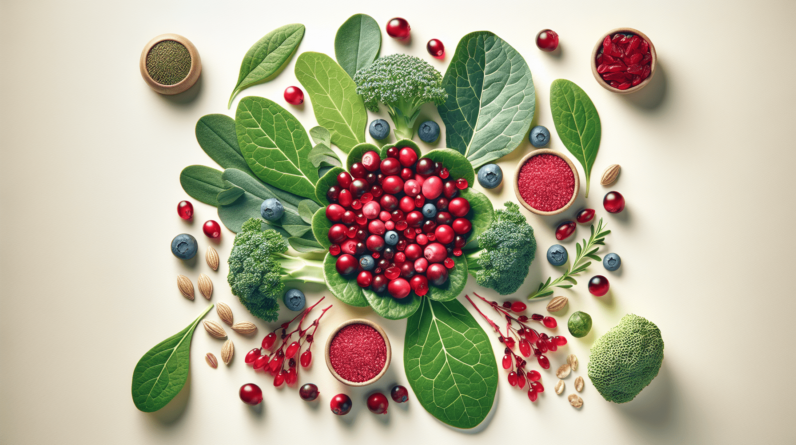
How Does Nutrition Impact Bladder Health?
When it comes to maintaining a healthy bladder, many factors come into play. Nutrition is a crucial component that can either support or hinder bladder health. By understanding how certain foods and beverages affect the bladder, we can make informed choices about our diet to promote optimal bladder function.
Importance of Hydration
One of the most critical aspects of maintaining a healthy bladder is staying hydrated. Adequate hydration helps to flush out toxins from the body and prevents urine from becoming too concentrated, which can irritate the bladder. Drinking enough water throughout the day is essential for overall bladder health.
The Role of Diet in Bladder Health
Our diet plays a significant role in bladder health. Certain foods and beverages can either promote or hinder bladder function. For example, acidic and spicy foods can irritate the bladder and exacerbate conditions such as interstitial cystitis. On the other hand, foods rich in antioxidants and nutrients can help support a healthy bladder.
Foods to Include in Your Diet for a Healthy Bladder
Choosing the right foods can make a significant difference in maintaining a healthy bladder. By incorporating bladder-friendly foods into your diet, you can support optimal bladder function and reduce the risk of bladder-related issues.
Water
Staying hydrated is essential for bladder health, and water is the best way to do so. Drinking an adequate amount of water each day helps to dilute urine and prevent irritation of the bladder lining. Aim to drink at least 8 cups of water daily to support a healthy bladder.
Cranberries
Cranberries are well-known for their role in promoting urinary tract health. They contain compounds that can help prevent bacterial adhesion to the bladder wall, reducing the risk of urinary tract infections. Incorporating cranberries or 100% cranberry juice into your diet can be beneficial for bladder health.
Leafy Greens
Leafy green vegetables such as spinach, kale, and Swiss chard are rich in antioxidants and nutrients that support overall health, including bladder health. These greens are also high in water content, which can contribute to hydration and promote a healthy bladder.
Whole Grains
Whole grains like brown rice, quinoa, and oats are excellent sources of fiber, which is essential for digestive health. A healthy digestive system plays a role in bladder function, as constipation and other digestive issues can put pressure on the bladder. Incorporating whole grains into your diet can help support both digestive and bladder health.
Foods to Avoid for a Healthy Bladder
While certain foods can benefit bladder health, others can have a negative impact and should be consumed in moderation or avoided altogether. By being mindful of the foods that can irritate the bladder, you can better manage bladder-related issues and prevent discomfort.
Caffeine
Caffeine is a diuretic that can increase urine production and irritate the bladder. Coffee, tea, soda, and energy drinks are common sources of caffeine that can exacerbate bladder conditions such as overactive bladder and interstitial cystitis. Limiting or avoiding caffeine can help reduce bladder irritation.
Alcohol
Alcohol is another diuretic that can irritate the bladder and increase the frequency of urination. It can also dehydrate the body, making urine more concentrated and irritating to the bladder lining. Limiting alcohol consumption and staying hydrated when consuming alcohol can help reduce its impact on bladder health.
Spicy Foods
Spicy foods can irritate the bladder and exacerbate bladder conditions such as interstitial cystitis. Ingredients like chili peppers, hot sauce, and curry can trigger bladder symptoms in some individuals. Minimizing or avoiding spicy foods can help prevent discomfort and support bladder health.
Artificial Sweeteners
Some artificial sweeteners, such as saccharin and aspartame, can irritate the bladder and increase the risk of bladder irritation and urinary urgency. Choosing natural sweeteners like honey, maple syrup, or stevia can be a better option for bladder health.
Tips for Maintaining a Healthy Bladder Through Nutrition
In addition to choosing bladder-friendly foods and avoiding bladder irritants, there are other dietary strategies that can help support bladder health. By incorporating these tips into your daily routine, you can promote optimal bladder function and reduce the risk of bladder-related issues.
Practice Portion Control
Maintaining a healthy weight is essential for overall health, including bladder health. Excess weight can put pressure on the bladder and pelvic floor muscles, leading to bladder leakage and other issues. Eating balanced meals and practicing portion control can help support a healthy weight and reduce the risk of bladder problems.
Stay Active
Regular physical activity is beneficial for bladder health, as it helps support overall muscle tone and function. Strengthening the pelvic floor muscles through exercises like Kegels can improve bladder control and reduce the risk of urinary incontinence. Aim for at least 30 minutes of moderate exercise most days of the week to support bladder health.
Manage Stress
Stress can have a negative impact on bladder function, as it can trigger bladder symptoms and worsen bladder conditions. Finding healthy ways to manage stress, such as meditation, deep breathing exercises, or yoga, can help support bladder health. Prioritizing self-care and relaxation can also improve overall well-being and reduce the risk of bladder-related issues.
Conclusion
Nutrition plays a vital role in supporting bladder health and function. By choosing bladder-friendly foods, avoiding bladder irritants, and incorporating healthy dietary habits into your routine, you can promote optimal bladder function and reduce the risk of bladder-related issues. Making small changes to your diet and lifestyle can have a significant impact on your bladder health and overall well-being. Prioritizing nutrition for a healthy bladder is an essential part of maintaining optimal health and quality of life.






